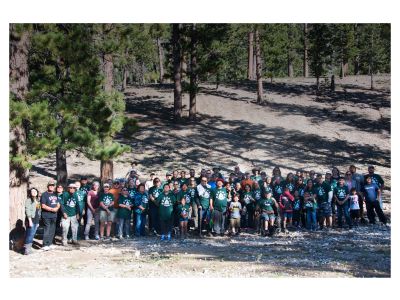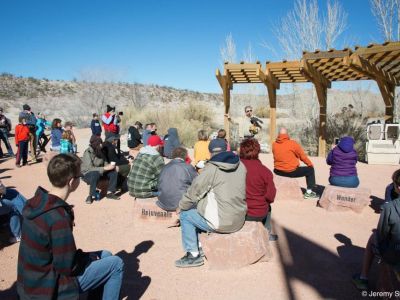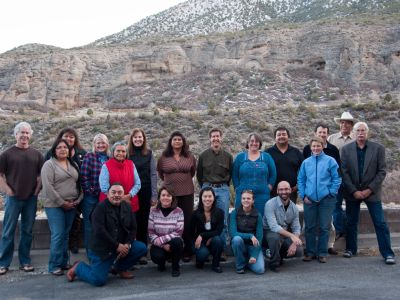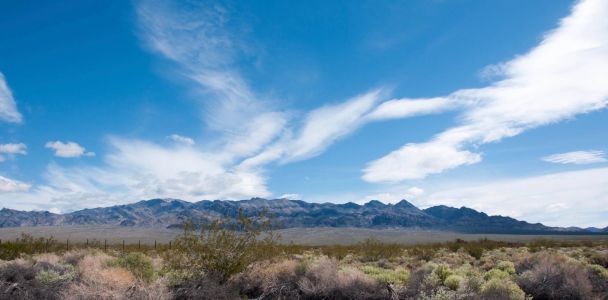Western USA
Collaborating with Native Americans and Federal Agencies on Protected Lands
In the Western USA, The Mountain Institute is using its decades of experience working with mountain people to serve as intermediary and bridge. TMI Senior Fellow Jeremy Spoon leads this work in partnership with Portland State University. We facilitate collaboration between Native Americans and the Federal Agencies that manage the land and natural resources that are key to indigenous cultures and their survival. Native Americans’ traditional knowledge is essential to conservation efforts and we work to secure a more effective role for them in the interpretation and management of protected areas. Our ongoing work in the Spring Mountains National Recreation Area (SMNRA) and Desert National Wildlife Refuge Complex (DNWRC) of Nevada is focused on the Nuwuvi (Southern Paiute) Nation consisting of seven tribes. Our goal is to help reunite native peoples with their ancestral territories and to reinforce the transmission of traditional knowledge to the next generation.Featured Projects

Collaborative Stewardship
Working together to sustain the land for future generations: TMI facilitates planning and implementation for collaborative stewardship activities between Nuwuvi and several federal agencies and non-profits. Currently, the stewardship focus is on pinion-juniper habitats, fire, and water. As part of these activities, Nuwuvi assist with reducing fire-fuel, reseeding after fire events, and restoring springs. Since 2012, TMI has facilitated an annual, multi-day “Gathering for Our Mountains” – an intergenerational meeting focused on pinion-juniper habitat management and cultural knowledge exchange. More about the Gathering here.

Public Education and Interpretation
Learning and communicating Indigenous relationships with protected areas: TMI has collaborated with the Nuwuvi Nation, the Timbisha Shoshone Tribe, the U.S. National Forest Service, and U.S. Fish and Wildlife Service to educate the public about Indigenous relationships with aboriginal territories that are now federally governed. This includes the co-research and co-design of four visitor centers and interpretive landscapes, including interpretive trials, campgrounds, and picnic areas. Each experience shares the Indigenous ties to the protected area and invites visitors to experience the area grounded in cultural respect for first peoples. A Working Group of tribally designated representatives collaborated in the research, design and content for all exhibits. These visitor centers first opened in 2014 and continue to create new programming annually.The sites include: The Spring Mountains Visitor Gateway at the Spring Mountains National Recreation Area, Corn Creek at the Desert National Wildlife Refuge, Ash Meadows National Wildlife Refuge, and Pahranagat National Wildlife Refuge. More about our Black Canyon Project here.

Consultation and Compliance
Creating pathways for communication: Through TMI’s partnership with the Nuwuvi Nation and the U.S. Forest Service, U.S. Fish and Wildlife Service, and U.S. National Park Service, we created a bi-annual consultation and compliance framework. TMI facilitates all meetings in collaboration with students from Portland State University. Each meeting includes representatives from the Nuwuvi Nation and federal agencies who meet twice a year to discuss updates in their respective protected areas and to plan for new projects. These meetings have occurred bi-annually since 2010. Learn more about our recent project to integrate Native American interpretation and resource stewardship into theLee Canyon Ski Area.
